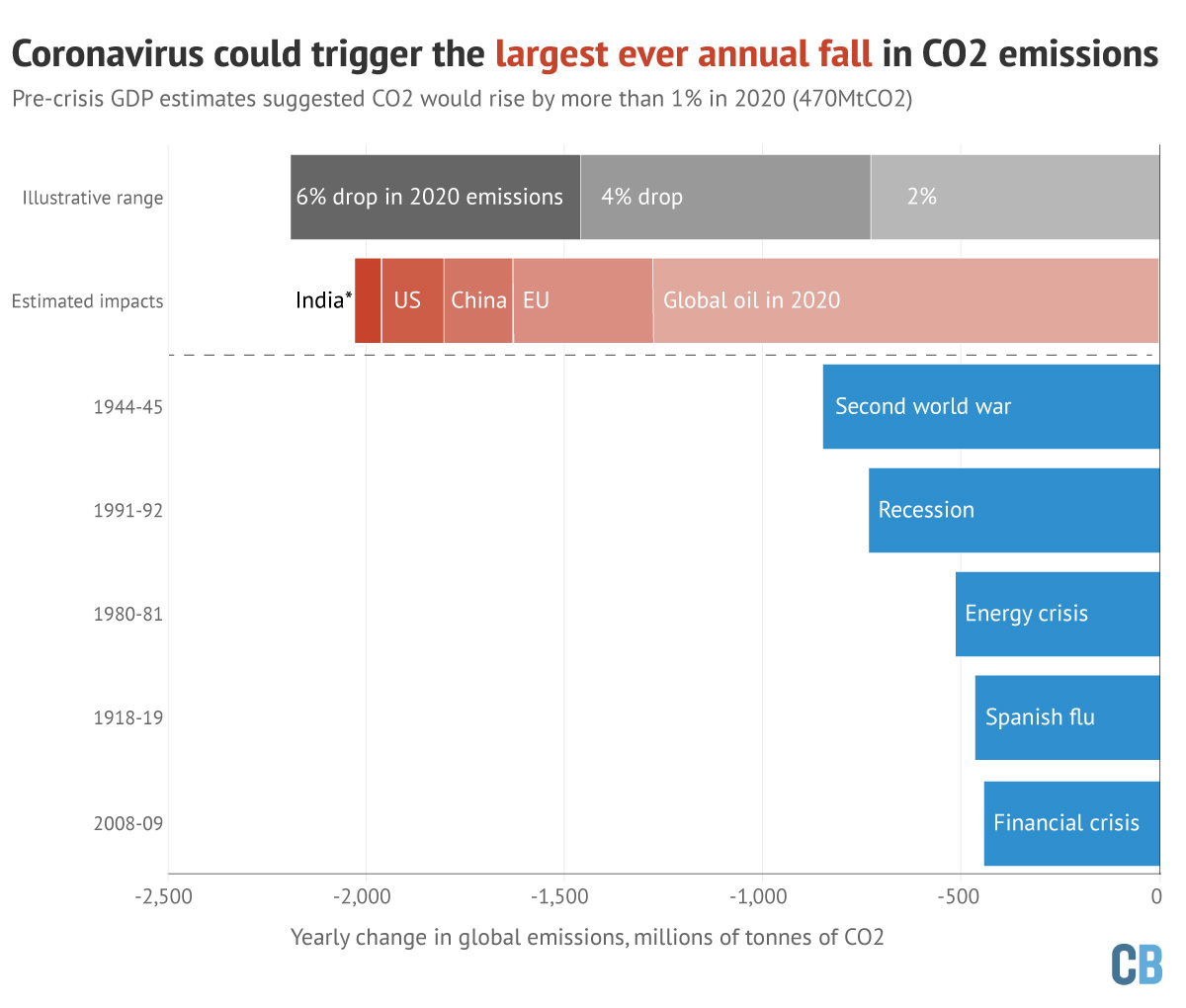From travel bans to stay-at-home orders, measures to prevent the transmission of COVID-19 have disrupted life on a global scale. In April, around the world there was a near 80% decrease in flights1 and in the United States, road travel reached lows of 73%2. This lull of human activity resulted in a 17% reduction in daily CO₂ emissions around the world in early April3.
After all the health and economic devastation, this sudden decrease in emissions may seem like a sign of hope. However, we must also consider the amount of waste COVID-19 is generating as the preservation of public health takes precedence. This year, the global market for disposable hospital supplies is predicted to grow 25%. Additionally, as an added precaution, many grocery stores are not allowing reusable bags which increases the use of single-use plastic.
It is difficult to determine the true impact of COVID-19 on the environment. However, it is important to recognize that the positive changes that are occurring are not due to any lasting shift in human behavior. Hopefully, the allure of blue skies and fresh air brought by reduced emissions serve as a wakeup call. Human activity causes incessant environmental distress and the way to rectify that is through deep-rooted change.
1 Brian Pearce, COVID-19 Updated Impact Assessment, International Air Transport Association, April 14, 2020, https://www.iata.org/en/iata-repository/publications/economic-reports/covid-fourth-impact-assessment/.
2 U.S. Travel Association, COVID-19 Travel Industry Research, https://www.ustravel.org/toolkit/covid-19-travel-industry-research.
3 Corinne Le Quéré et al., Temporary reduction in daily global CO2 emissions during the COVID-19 forced confinement, Nature Climate Change, May 19, 2020, https://www.nature.com/articles/s41558-020-0797-x.
4 The Business Research Company, Disposable Hospital Supplies Global Market Report, July 2020, https://www.thebusinessresearchcompany.com/report/disposable-hospital-supplies-market-global-report-2020-30-covid-19-implications-and-growth.
Get the latest news & insights from MarketVector
Get the newsletterRelated:





